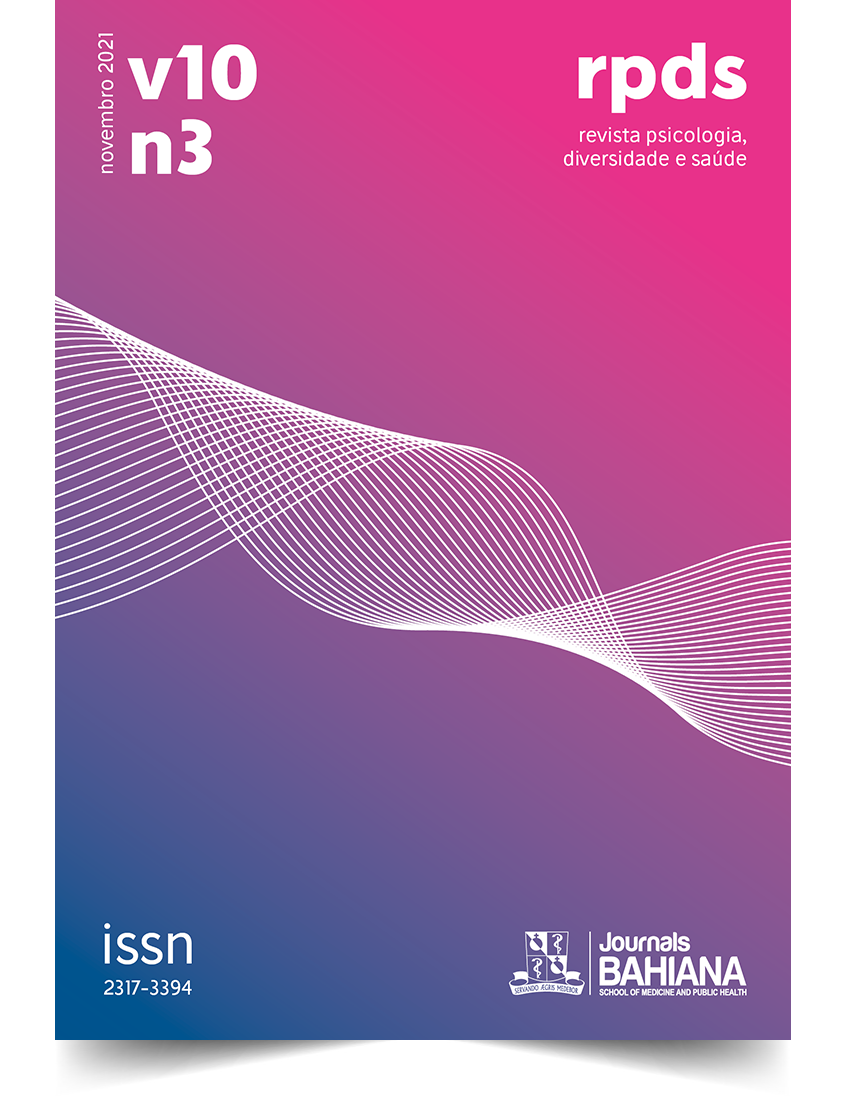Visita domiciliar na Atenção Primária à Saúde: contribuições para a formação em Psicologia
DOI:
https://doi.org/10.17267/2317-3394rpds.v10i3.3468Palavras-chave:
Atenção Primária à Saúde. Formação do psicólogo. Atendimento domiciliar. Supervisão clínica. Clínica Ampliada.Resumo
INTRODUÇÃO:Há potencialidades e desafios no trabalho das psicólogas nos Núcleos de Apoio/Ampliado à Saúde da Família (NASF). Críticas giram em torno de um repertório profissional inadequado para este contexto, consequência da ênfase na formação clássica e ainda hegemônica. OBJETIVO: Refletir sobre o planejamento, execução e avaliação da estratégia de atendimento domiciliar em psicologia realizado pelo NASF, em Salvador-Bahia. MÉTODO: Trata-se de um relato de experiência. Utilizamos a supervisão compartilhada (SC), que consiste em: relato da situação concreta de atendimento domiciliar, registrado em Relato de Visitas; os sentimentos e afetações em relação ao que foi vivenciado; reflexões e sínteses sobre o atendimento domiciliar em relação às atuações clínicas clássicas. Nas SC quinzenais, os atendimentos domiciliares eram narrados pelos/as extensionistas/os e preceptora e os registros de visita compartilhados reflexivamente. A análise foi realizada com base nas discussões ocorridas durante os momentos de SC, com ênfase no ato narrativo e bem como através dos relatos escritos das visitas. RESULTADOS: Realizamos 63 visitas domiciliares e destacamos duas dimensões: 1) mudanças no processo de trabalho, em relação à concepção hegemônica da atuação psicológica; 2) percepção de que o modo com que somos acolhidos/as nos domicílios reflete as possibilidades de cuidado, exigindo uma postura ativa, sensível, acolhedora na relação profissional-usuário/a. CONCLUSÃO: A atenção domiciliar apresentou-se como um desafio, requerendo a ampliação de habilidades, modos não tradicionais de se portar e comunicar, de maneira a facilitar o diálogo, a escuta, sendo uma estratégia para ampliar o repertório profissional.
Downloads
Downloads
Publicado
Edição
Seção
Licença
Copyright (c) 2020 Monica Lima, João Batista Alves, Louise Lago, Fernanda Rebouças, Leila Grave

Este trabalho está licenciado sob uma licença Creative Commons Attribution 4.0 International License.
Esta obra tiene una licencia de Creative Commons Atribuição 4.0 Internacional.



